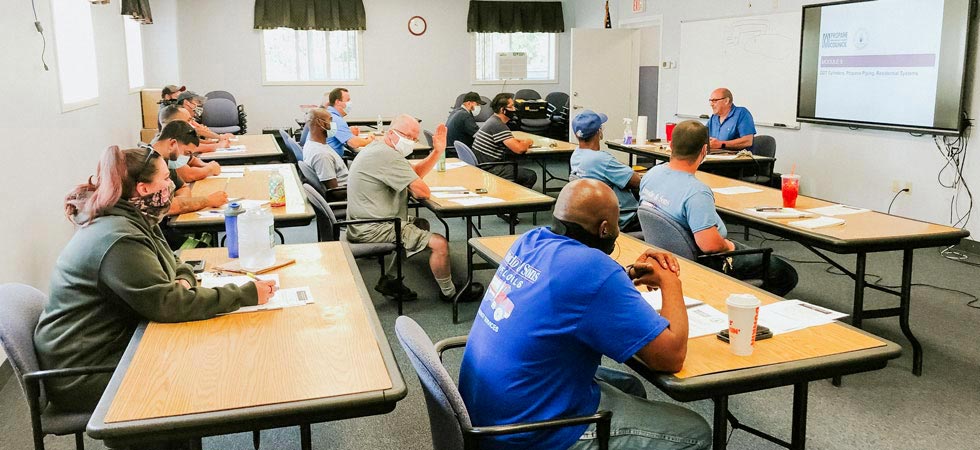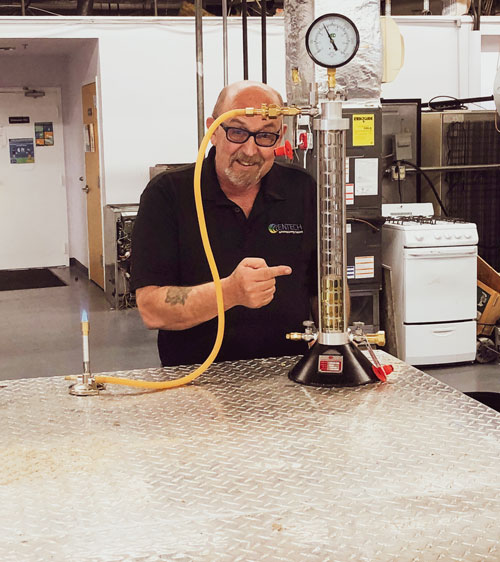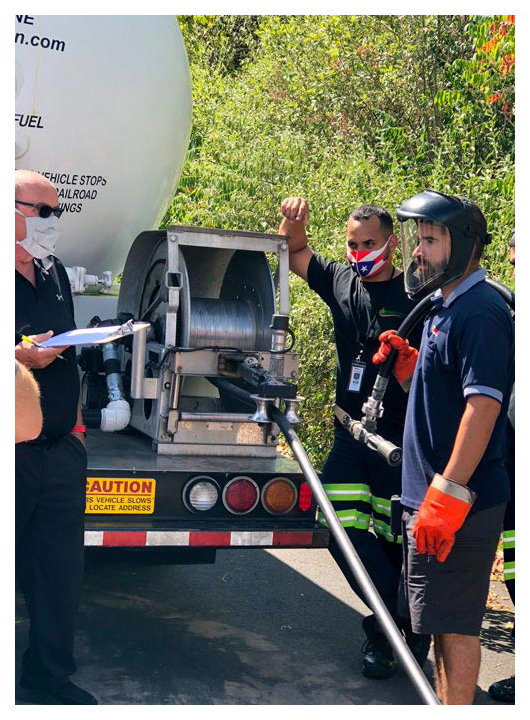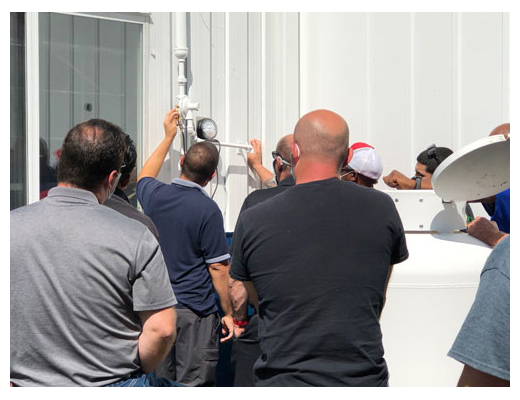
The energy industry has seen considerable changes over the last several years. For most of the past century, heating oil was the predominate fuel used for home heating. A decade ago, the Northeast experienced a big push by state governments to promote conversion to natural gas.
And now there is a major shift by regulators and policymakers to promote electric heat pumps. Through all of this, the propane industry has steadily increased its customer base, and with that comes the need to educate the industry on how to properly install, maintain, repair and deliver this fuel.
Consumer demand for propane has been growing over the past decade, and with increased demand comes the need for education and training so the industry can meet the needs of its customers. The diverse uses of propane have made this fuel a popular choice for homeowners beyond heating and hot water. Pool heating, outdoor grills, generators and indoor cooking have all driven consumers to look to propane to meet their needs.
In response to this demand, many home heating oil and heating, ventilation and air conditioning (HVAC) companies in Connecticut began to diversify by adding propane to their offerings. With the industry’s long commitment to safety and education, the need for formal technical training specifically for propane became obvious.
 ENTECH Advanced Energy Training, Connecticut’s nonprofit state-certified school located in Cromwell, recognized the discernable need for propane training and began offering the Certified Employee Training Program (CETP) from the Propane Education and Research Council (PERC) in 2006 to ensure that licensed service professionals and drivers had the proper training to service equipment and deliver propane to homes and businesses.
ENTECH Advanced Energy Training, Connecticut’s nonprofit state-certified school located in Cromwell, recognized the discernable need for propane training and began offering the Certified Employee Training Program (CETP) from the Propane Education and Research Council (PERC) in 2006 to ensure that licensed service professionals and drivers had the proper training to service equipment and deliver propane to homes and businesses.
CETP courses provide a formal structure for testing and verify the employee’s knowledge and skills to perform their work safely and effectively. The first step in being granted CETP certification is the Basic Principles and Practices in Propane course, which covers core curriculum, including a written exam and skills assessment.
This is the baseline prerequisite to other, more advanced courses. These courses offer specific training and certifications for employees who transport propane or install and service propane equipment.
Essential knowledge concerning propane equipment and safety is explored in more detail when employees progress to the more advanced courses, which include comprehensive instruction on vapor distribution systems, delivery operations, appliance service, installation and troubleshooting. The Connecticut “G” License, for example, can be obtained by taking the CETP classes and will allow a service technician to install, repair and maintain gas piping systems and approved gas appliances.
 To qualify for a G License, you must also complete 1,000 hours (six months) of on-the-job training as part of a paid apprenticeship program and then pass a state exam. CETP is also an approved curriculum for many of the other New England state licenses and certifications.
To qualify for a G License, you must also complete 1,000 hours (six months) of on-the-job training as part of a paid apprenticeship program and then pass a state exam. CETP is also an approved curriculum for many of the other New England state licenses and certifications.
CETP has been a game changer for many businesses that were more familiar with installing, maintaining and repairing oilheat systems. The program has enabled fuel retailers to add new profit centers now that they have employees who are properly trained to handle propane tanks, appliances and bobtails.
Veteran service technicians who have spent the majority of their careers working on oil equipment were hesitant to work on gas equipment, which restrained how fast a company could grow their propane business.
CETP training took “oil techs” and made them multidimensional service professionals who no longer feared working on equipment and a fuel they were less familiar with. With a comprehensive review of fundamental theory and hands-on work in the lab, technicians who were anxious about working on propane equipment now embrace and enjoy it.
Once the education programs became more readily available to technicians, retailers were more aggressive in marketing propane to consumers, which has considerably grown the industry and opportunities for propane businesses and their employees.
A large number of fuel company owners in Connecticut have used the CETP Basics class as a part of their due diligence before deciding to offer propane to customers.
This class has been a tremendous vehicle to help an owner gain a better understanding of what it means to be in the propane business and if they should make the investment in the steel and the training that goes along with it. This vital information has launched dozens of businesses over the past several years and trained hundreds of technicians.
Required training to obtain a Connecticut S2 License (i.e. heating, ventilation and air conditioning repair, or HVACR, license), which allows a service professional to work on propane equipment, requires six months of class and lab work in addition to four years of on-the-job training in a registered apprenticeship program.
 And with all of that, the CTEP program is still able to add value and more focus on the specifics of propane. CETP is a vital training program that supplements the skills and knowledge that the labor force needs to work on equipment.
And with all of that, the CTEP program is still able to add value and more focus on the specifics of propane. CETP is a vital training program that supplements the skills and knowledge that the labor force needs to work on equipment.
Since 1978, ENTECH has been playing an essential role in providing HVACR training. When the CETP program was introduced at ENTECH a decade and a half ago, the school expanded to accommodate the growing need for propane training. Last year, PERC awarded the school a grant for $10,000 to integrate a new HVAC and Plumber Technical Training course that facilitated the purchase of cutting-edge propane equipment that is being used to further educate students about propane applications.
CETP training has been and continues to be an essential part of diversifying energy marketing businesses in Connecticut and across the country and provides critical training to the people who are the backbone of the industry — service technicians.


